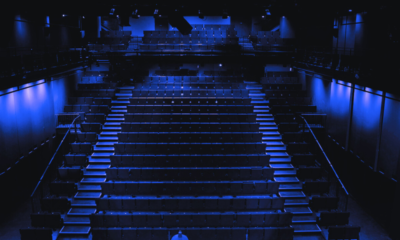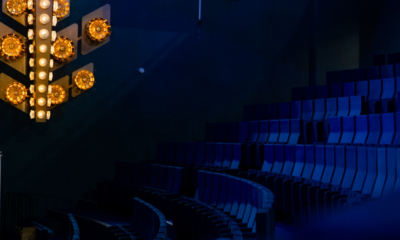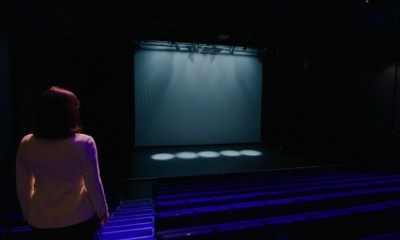Dix-huit ans après avoir enregistré les concertos de Bach, Francesco Tristano propose aujourd'hui une nouvelle lecture de trois d'entre eux en compagnie du chef d'orchestre Léo Margue et de l’Ensemble Bach Stage constitué pour l'occasion. Historiquement documentée, mais jamais figée, cette nouvelle version, pour le label Scala Music, propose également à trois compositeurs d'écrire des cadences inédites pour ces concertos. Il jouait les concertos de Bach debout, avec énergie et vivacité ! Le pianiste Francesco Tristano bouscule toutes nos habitudes avec cet album. A-t-on déjà entendu ces concertos avec une telle rythmique obsédante, énergique et solaire de ce Concerto en La Majeur BWV 1055. La partie de piano, avec ses cascades d’arpèges, irradie pendant que l’ensemble à cordes ponctue le dialogue avec des interventions incisives et rythmées.
ENGLISH VERSION
Eighteen years after first recording the Bach piano concertos, Francesco Tristano revisits three of these classics in partnership with Leo Margue as the conductor and the Bach Stage Ensemble, set up especially for the project. Recorded for the label Scala Music, this new version has historically been documented but never set in stone. Three composers were also given the opportunity to write Cadenzas for these concertos. Francesto Tristano plays while standing with great spirit and energy! The pianist shakes up musical habits with this album. We have never heard these concertos with such an obsessive and forceful rhythm like the Concerto in A Major BWV 1055. The piano section, with its succession of arpeggios, radiates while the string ensemble punctuates the dialogue with incisive and rhythmic interventions.
Léo Margue
Chef d’orchestre, pianiste et saxophoniste, Léo Margue a fait ses débuts en tant que chef assistant de trois orchestres français: l’Orchestre National de Lille, l’Orchestre de Picardie et l’Orchestre National d’Île-de-France. Formé au Conservatoire National Supérieur de Musique de Paris, il intègre la classe d’Alain Altinoglu en 2013. Chef assistant de Matthias Pintscher à l’Ensemble Intercontemporain de 2019 à 2021, il devient particulièrement actif dans le milieu de la création et s’intéresse aux interactions entre les musiques écrites et improvisées avec le projet LIKΣN aux côtés du compositeur/improvisateur Timothée Quost.
Invité par les principaux ensembles français de création musicale, Léo Margue reprend en 2022 la direction artistique de l’Ensemble 2e2m pour en assurer la continuité historique et la nouveauté, afin que la création artistique soit au cœur des attentes de tous les publics, d’aujourd’hui et de demain.
ENGLISH VERSION
Conductor, pianist and saxophonist, Leo Margue made his debut as an assistant conductor of three French orchestras: The Orchestre National de Lille, The Orchestre de Picardie and the Orchestre National d’Île-de-France. After entering the Conservatoire National Supérieur de Musique de Paris with Alain Altinoglu as a teacher since 2013, he follows Miko Franck’s masterclass along with the Philharmonic Orchestra from Radio France, and David Zinman’s with the Orchestre National de Lyon. Attracted by theater and dance, he partnered with Marc-André Dalbavie, Bertrand de Billy at the Paris Opera and worked on several occasions with Farid Berki, French choregraph of contemporary dance and hip-hop. Chief assistant of Matthias Pintscher at the Ensemble Intercontemporain from 2019 to 2021, he becomes particularly proactive in the field of creation and is especially interested in the correlation between improvisation and written music with the LIKΣN project, alongside with Thimothée Quost, composer and improviser.
Invited by the main French creative music ensembles, Léo Margue took over the artistic direction of Ensemble 2e2m in 2022 to ensure its historical integrity and innovativeness, so that artistic creation is at the heart of the expectations of all audiences, today and tomorrow.
Francesco Tristano
Francesco Tristano mène une carrière aux multiples facettes en tant que pianiste, compositeur et producteur, plongeant dans la musique classique et électronique. En tant qu’artiste classique, il est associé à la musique baroque, en particulier à J.S. Bach, ainsi qu’à Buxtehude et Frescobaldi. Tristano est également à l’aise dans la musique contemporaine et d’avant-garde, interprétant les œuvres de Luciano Berio, John Cage et Igor Stravinsky en plus de ses propres compositions.
Pendant ses années d’études, Tristano a fait ses débuts aux Etats-Unis avec l’Orchestre national russe sous la direction de Mikhail Pletnev. L’année suivante, il fonde les New Bach Players, avec lesquels il s’est régulièrement produit en tant que soliste et chef d’orchestre. En 2004, le label polonais CD Accord a publié son coffret de deux disques de l’intégrale des concertos pour clavier de Bach.
Tristano a commencé à travailler avec le label techno berlinois Get Physical Music en 2014, en commençant par l’EP Piano, Hats & Stabs ainsi que LudePre, un 12′′ limité en collaboration avec Carl Craig. En 2016, Surface Tension de Tristano a été publié par le label Transmat basé à Détroit, qui comprenait quatre collaborations avec Derrick May ainsi que la reprise acclamée par Tristano de « Merry Christmas Mr. Lawrence » de Ryuichi Sakamoto. Tristano a arrangé, orchestré et joué sur l’album Versus (2017) de Craig, auquel participe l’orchestre Les Siècles, dirigé par François- Xavier Roth.
Par ailleurs, en 2016, Tristano a lancé un nouveau spectacle audiovisuel Goldberg City Variations aux Köthener Bachfesttage, en Allemagne, basé sur la « Cosmic City » de Iannis Xenakis (1963).
2017 a marqué le 85e anniversaire de la naissance de Glenn Gould. Tristano a fait partie d’une série d’expositions spéciales et de concerts organisés par l’icône du japonais Ryuichi Sakamoto et commandés par la Fondation Glenn Gould (Toronto, CA). Tristano a fait ses débuts chez Sony Classical avec Piano Circle Songs (2017), qui comprenait des collaborations avec Chilly Gonzales. Tokyo Stories (2019) a agi comme une lettre d’amour tonale à sa ville éponyme. Sa dernière sortie « Tristano plays Gulda » a été publiée pour commémorer le 20e anniversaire de la mort de l’artiste en janvier 2020.
En 2018/19, Tristano a collaboré avec la société japonaise Yamaha pour créer le premier algorithme de performance de l’intelligence artificielle de Glenn Gould. La première du projet a eu lieu en 2019 au festival Ars Nova de Linz, au monastère Saint Florian, et a été saluée par la critique.
ENGLISH VERSION
Francesto Tristano has a multi-faceted career as a pianist, composer and producer, diving into classical and electronic music. As a classical music artist, he is often associated to baroque music, particularly with JS Bach as well as Buxtehude and Frescobaldi. Tristano is also at ease in contemporary music and avant-garde, interpreting Luciano Berio works, John Cage and Igor Stravinsky in addition to his own compositions.
While still studying, Tristano started his career as a soloist. In 2000, he made his debut in the United States with the Russian National Orchestra conducted by Mikhail Pletnev. Soon after, he founded the New Bach Players with whom he regularly produced himself as a soloist and conductor. In 2004, the Polish label CD published its booklet of two CD’s of the Bach Keyboard Concertos. Tristano started working with the Berliner techno label Get Physical Music in 2014, starting with the piano EP, with Hats & Stabs as well as LudePre, a twelve-minute work partnering with Carl Craig. Afrodiziak, a jazz-influenced album with percussionists Bachar Khalifé and Pascal Schumacher, was released in 2015 on the reborn label MPS. In 2016, Surface Tension was released by the Transmat label located in Detroit comprising four collaborations with Derrick May and a remix from Tristano of « Merry Christmas Mr. Lawrence » originally composed by Ryuichi Sakamoto. Tristano arranged, orchestrated and played on the album Versus (2017) from Craig, in which the orchestra Les Siècles plays, conducted by François-Xavier Roth.
On another note, Tristano launched a new audiovisuel show called Goldberg City Variations in Köthen in 2016 during the Bachfesttage. Based on the “Cosmic City” of Lannis Xenakis (1963, the Greek pioneer's imagination of a future urban redevelopment is fuelled by the 20,000+ pitches that make up Bach's Goldberg Variations and is developed in real time via a video projection.
2017 celebrated the 85th anniversary of Glenn Gould's birth. Tristano was part of a series of special exhibitions and concerts organised by Japanese icon Ryuichi Sakamoto and was commissioned by the Glenn Gould Foundation located in Toronto, CA. A "Glenn Gould Gathering" was held at Sogetsu Hall in Tokyo and was marked by a tribute concert entitled "Glenn Gould - Remodels", which resulted in a live album. Tristano performed works by Sweelinck and Gibbons.
Tristano made his Sony Classical debut with Piano Circle Songs (2017), which included collaborations with Chilly Gonzales. Tokyo Stories (2019) acted as a tonal love letter to his namesake city. His latest release 'Tristano plays Gulda' was released to commemorate the 20th anniversary of the artist's death in January 2020.
In 2018/19, Tristano collaborated with Japanese company Yamaha to create the first Glenn Gould artificial intelligence performance algorithm. The project premiered in 2019 at the Ars Nova Festival in Linz at the St. Florian Monastery and was met with critical acclaim.





